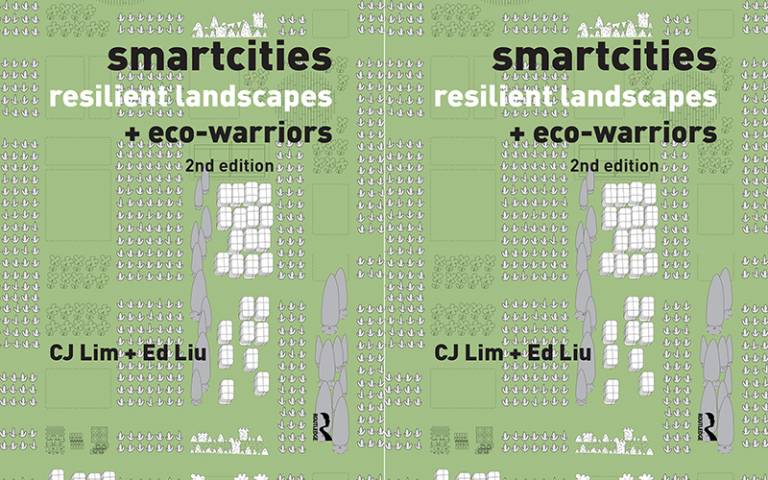Bartlett Professor's Book is Routledge's 2019 Bestseller
7 January 2020
Smartcities, Resilient Landscapes + Eco-warriors by Professor CJ Lim has topped Routledge's list of bestsellers.

Professor CJ Lim's latest book Smartcities, Resilient Landscapes + Eco-warriors has reached number one on Routledge’s 2019 Annual bestsellers list. The book is CJ's fifth work to have achieved the top position.
Following the success of the first edition, Smartcities, Resilient Landscapes + Eco-warriors (2010), CJ explores the discourse of climate change, and the potential to improve existing habitats and create new landscapes in his latest book.
The concept of the 'Smartcity' is developed through a series of international case studies, some commissioned by government organisations, others speculative and polemic. The book concludes with two new essays on the romance of trees and the empowering nature of resilient landscapes.
In response to his book's popularity, Professor CJ Lim comments:
Smartcities represent a crucial voice in the discourse of climate change and the potential opportunities to create new landscapes which are considered beneficial to local ecology and urban sustainability. Reframing the way people think about the urban green revolution, trees are not only protagonists but also witness to the ways we imagine their character in our own romance of humanity and resilience.
About Professor CJ Lim
CJ Lim is Professor of Architecture and Urbanism at The Bartlett and the founder of Studio 8 Architects. His teaching and designs focus on multi-disciplinary innovative interpretations of social, political, and environmental sustainability programmes.
He is the recipient of the Royal Academy of Arts London ‘Grand Architecture Prize’ and has authored 12 books, including four other annual bestsellers: Smartcities + Eco-warriors (2010), Short Stories: London in two-and-a-half dimensions (2011), Food City (2014) and Inhabitable Infrastructures (2017).
 Close
Close

